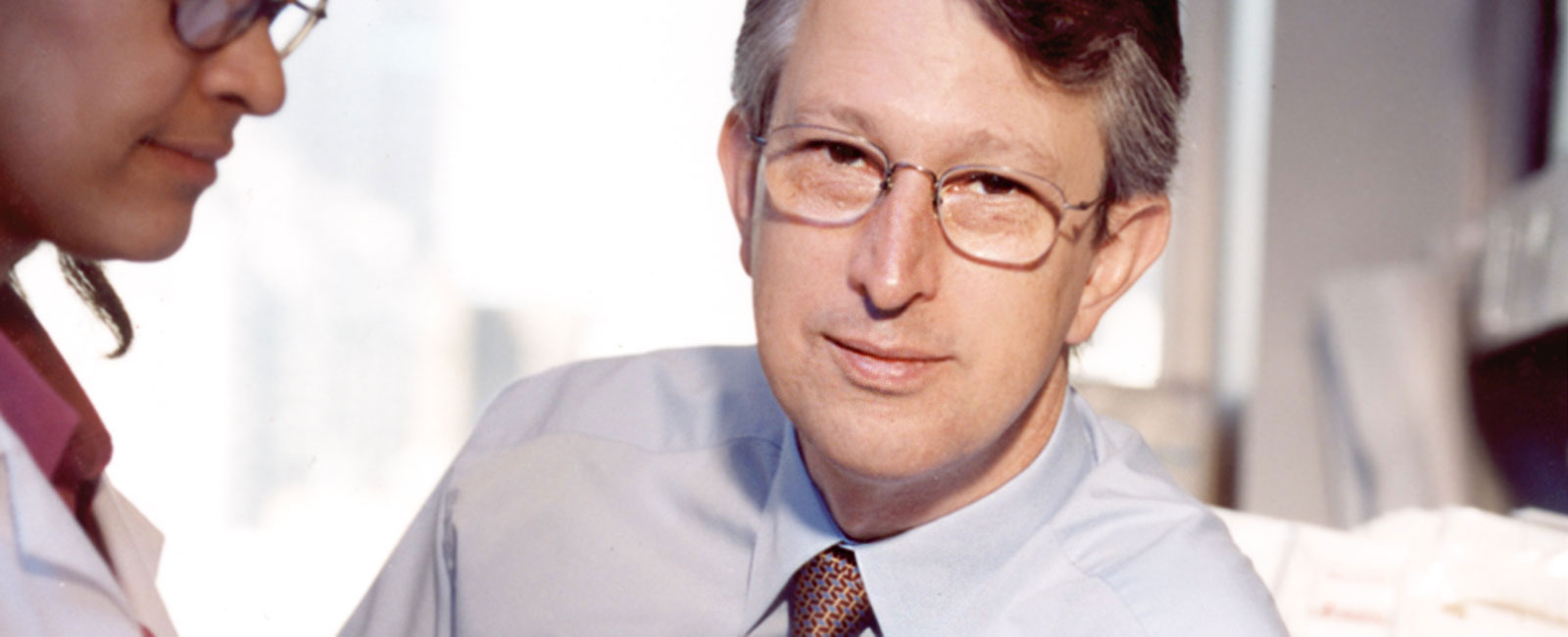Cancer researcher Joan Massagué wins the BBVA Foundation Frontiers of Knowledge Award in Biomedicine
The BBVA Foundation Frontiers of Knowledge Award in the Biomedicine category has gone in this inaugural edition to cancer researcher Joan Massagué i Solé (Barcelona, 1953), Spain’s most internationally cited working scientist. Massagué’s research has elucidated fundamental processes that control cell division and identified genes playing a key role in tumor generation and metastasis. This is work “with great potential for clinical application”, in the words of the jury chaired by Nobel laureate in Physiology and Medicine, Torsten Wiesel.
27 January, 2009
Joan Massagué is Chairman of the Cancer Biology and Genetics Program at the Memorial Sloan-Kettering Cancer Center, where he has pursued most of his scientific career. He is also a Howard Hughes Medical Institute investigator, and Adjunct Director of the Institute for Biomedical Research (IRB Barcelona). He has more than 340 publications to his name in leading scientific journals, which have been cited more than 62,000 times.
Joan Massagué’s research stands out for the identification and characterization of the TGF-beta protein (transforming growth factor beta). This protein belongs to a large family of factors that regulate the cell division process. It is essential for the organism’s normal development but is also implicated in disease processes such as malformations and cancer.
Massagué’s first remarks on receiving the news were: “I am even more delighted given the ambitiousness of these awards, as evidenced by the stature of the winners in the two categories previously decided. And I am proud that an international initiative to recognize knowledge as future capital comes from an institution, the BBVA Foundation, of Spanish nationality”.
On the merits that earned him this award, he explains: “In a field as wide as Biomedicine, the fact that the jury has singled out my work is an encouragement to my group and to other researchers in oncology. We are striving to move forward the frontiers of oncology, starting from the study of very basic aspects like cell biology and behavior, that are perhaps abstruse for most people, in order to address others as concrete as metastasis, so that what yesterday seemed impossible is today a tentative promise and may in a few years’ time become a solution”.
Great potential for clinical application
The jury’s citation reads as follows: “The BBVA Foundation Frontiers of Knowledge Award in Biomedicine corresponding to the year 2008 has been conferred upon Dr. Joan Massagué for elucidating one of the fundamental processes that control cell division, namely, the machinery that conveys the growth inhibitory signal of TGF-beta from the cell membrane to the nucleus. Many of the components of this signaling transduction pathway have been identified and functionally characterized by Dr. Massagué.
The TGF-beta pathway is crucial for the development of all animals, and when disrupted, contributes to diseases such as cancer. Massagué and colleagues have also developed novel approaches to identify genes involved in organ-specific metastasis. These studies have considerably increased the understanding of metastasis and have great potential for clinical application, given that 90 percent of cancer-related deaths are due to this invasive process”.
The jury in this inaugural edition of the Frontiers of Knowledge Awards, Biomedicine category, was chaired by Torsten Wiesel, Nobel Prize in Physiology and Medicine, and formed by Angelika Schnieke, Technical University of Munich (Germany), an expert on cloning and second author of the ‘Dolly’ paper; Bruce Whitelaw, a leading expert in transgenic animals, Roslin Institute (United Kingdom); Dario Alessi of the Scottish Institute for Cell Signalling (United Kingdom); Robin Lovell-Badge, of the National Institute for Medical Research (United Kingdom); Josep Baselga, oncologist in the Research Institute of Vall d’Hebron Hospital, Barcelona; and Juan Modolell, Severo Ochoa Molecular Biology Center, Madrid, holder of the ‘Santiago Ramón y Cajal’ National Research Prize in Biology.


